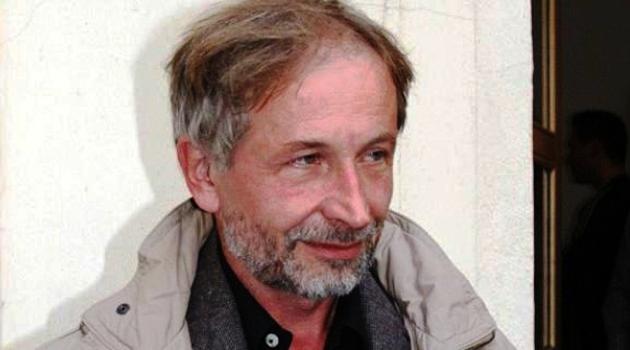Czech Constitutional Court rejects complaint by convicted Holocaust denier

The Czech Constitutional Court has rejected a complaint filed with it by the Czech-Canadian author Vladimír Stwora, who has been convicted in the Czech Republic of using the internet to doubt the extent of the Holocaust. While the prisoner amnesty announced by former Czech President Václav Klaus had already cancelled the suspended sentence handed down against Stwora, he insisted on having his complaint against it heard by the court.
According to the Constitutional Court justices, the Czech judicial system made no error when it ruled that the publishing of a translated article relativizing the Nazi genocide of the Jews met the definition of supporting and promoting a movement aiming to suppress the rights and freedoms of citizens. In his complaint against that ruling, Stwora defended himself by saying he had merely intended to spark discussion.
Stwora said the lower court had chosen an interpretation of the law that was too strict and that it would result in making any expert, historical or technical reflections about the past impossible. His complaint alleged that the court’s interpretation completely unnecessarily ruled out and suppressed freedom of thought.
The Constitutional Court justices based their ruling on the claim that freedom of speech is not absolute and that its outer limit ends, for example, precisely with Holocaust denial. The Constitutional Court therefore found no reason to intervene against the lower court ruling.
"The Constitutional Court has verified that the public courts were repeatedly involved with the given matter in detail and to a sufficient extent. When evaluating the constitutional complaint, the court found no undue license in their proceedings," the Constitutional Court ruling reads.
The scandal concerned a Czech-language translation of an article entitled "The Holocaust and its four-million version" ("Holokaust a jeho čtyřmilionová varianta") published in July 2007 on the website www.zvedavec.org. The text includes the following sentence: "In reality there exists no proof that poisonous gas, gas chambers, or gas ovens were used in any death camp."
According to the indictment, Stwora published the text with the intention of contravening "the essence and extent of the Nazi genocide against the Jews during the Second World War." Stwora responded by claiming that the article did not doubt the Holocaust, but merely pointed to discrepancies between official sources of information about it.
Stwora also argued that he has the right to freedom of speech. In 2011, after a protracted trial before the Praha-západ District Court, the Regional Court in Prague sentenced Stwora to six months in prison, suspended for two years, for promoting and supporting a movement aimed at suppressing human rights and freedoms.
The District Court acquitted Stwora twice before the Regional Court ruled against him. The Czech Supreme Court then rejected an appeal he filed with them in 2012.